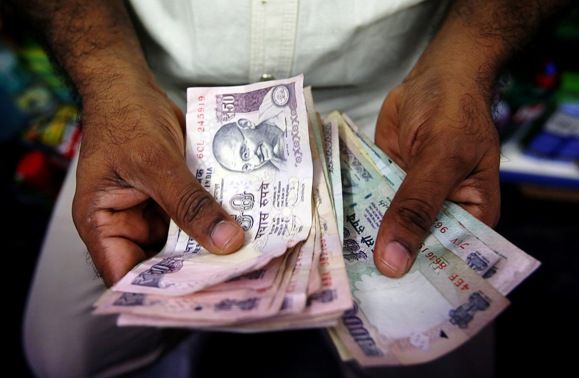
The Indian economy is widely seen as weak
When Hindustan Construction Ltd was building a bridge in 2008 to transform the congested commute in Mumbai, its stock was at a record high as low interest rates had sparked a construction boom.
Today, like many small- and mid-sized Indian firms, Hindustan Construction is struggling, after a borrowing binge that saw its debt surge from $674 million in fiscal year 2007/2008 to $1.6 billion in 2014/15, according to Thomson Reuters data.
Companies are still struggling to recover from those years of exuberance, and say that Reserve Bank of India Governor Raghuram Rajan's caution in cutting rates despite historically low inflation is making it harder for them to get back on track.
Having cut India's main lending rate by three-quarters of a percentage point to 7.25 percent this year, the RBI is widely expected to keep it unchanged at its next policy review on Tuesday, though market watchers predict one more cut by the end of the year.
For many bosses, that is not enough.
"I'm disappointed with the RBI,"said Praveen Sood, chief financial officer of the HCC group.
"I just don't know if they care enough about the industrial sector."
The growing discontent comes as wholesale inflation has declined for eight consecutive months, while consumer inflation remains far from the double-digit levels less than two years ago and within the RBI's target of 2 to 6 per cent.
At the same time, the Indian economy is widely seen as weak, with much scepticism over official data in May which showed its growth overtook China's.
Corporate profits are hurting.
An analysis of 70 companies with a market capitalisation of at least $100 million showed net income fell by 5 per cent in April-June, the second consecutive quarterly decline, according to Thomson Reuters data.
HCC, for example, reported last week that its April-June net profits slumped by about 70 per cent to 80.2 million rupees.
The builder is looking to sell additional shares and has sold stakes in an commercial complex in Mumbai and in a highway, with proceeds going to service debt or interest costs.
"High interest rates at this point of time are basically killing the growth of the company," said Sood.
"When inflation has gone down so much, there's no reason why interest rates shouldn't be coming down."
Some economists now worry the RBI is excessively focused on prices, having this year shed its previous policy of managing multiple objectives towards one that targets consumer inflation while 'keeping in mind the objective of growth'.
Soumya Kanti Ghosh, chief economic adviser of State Bank of India, argues that weak commodity prices are keeping inflation down, giving the RBI scope to do more to help companies.
"The RBI should also try to boost growth," he said.











 © 2025
© 2025